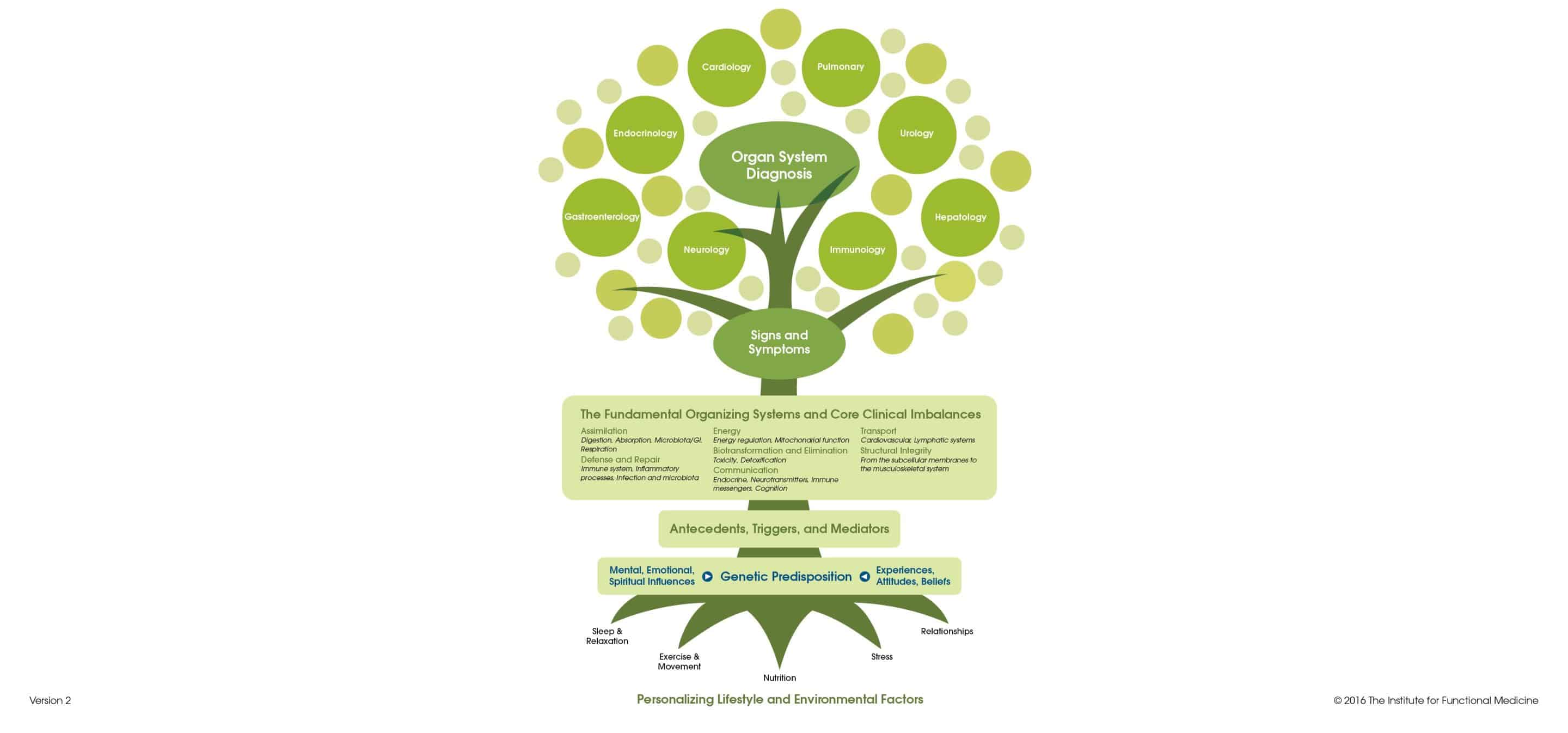What is Functional Medicine?
Functional Medicine has exploded in the USA and it’s understandable why. Chronic diseases such as diabetes, heart disease, and cancer are epidemics which are destroying more lives every year despite more people taking more drugs. It is clear the current system we use to treat chronic disease is not a long term solution and people are looking for alternatives. And while there is an increase in the awareness of health and wellness in the UK with figures such as Dr Rangan Chatterjee driving the paradigm of healthy living forward, Functional Medicine is still not a widespread publicly known term…yet.
What is Functional Medicine?
Although Functional Medicine is seen as the new kid on the block in the health world, it is actually not a new concept at all. The principles of what makes a human being healthy have been known and used to restore health for thousands of years. In ancient Greece, the father of medicine, Hippocrates, used statements such as “let food be thy medicine and medicine be thy food”. What is new about Functional Medicine however is that it has taken these principles, along with modern ones, and used them to develop a systemised model which allows the practitioner to effectively:
- Assess what facet of health is dysfunctional within the patient.
- Recognise why that is in respect to the patients’ life, genetics and environment.
- Identify how those lifestyle, genetic and environmental factors are affecting the patients physiology.
Altered physiology, or physiology that has ‘adapted’ to changes in life, can place stress on the body. If this stress is maintained for long periods it can result in our body telling us it is under stress through symptoms. Then we give that collection of symptoms a name such as ‘diabetes type 2’.
“Chronic diseases such as diabetes, autoimmune disease and Alzheimer’s do not drop out of the sky.”
The problem with giving a group of symptoms a name is that we then focus on the name like it is an infection we catch, rather than focussing and emphasising the importance on what caused the physiology to start changing initially. Chronic diseases such as diabetes, autoimmune disease and Alzheimer’s do not drop out of the sky. They develop slowly over time and reflect how our lifestyle and environment interact with our genetics and then affect our physiology. A study published in Arthritis & Rheumatism in 2010 showed that cytokines (an inflammatory protein) were markedly increased years before the onset of noticeable symptoms in people who developed rheumatoid arthritis later in life. This suggests the disease was ‘brewing up’ and something was triggering their immune system to upregulate levels of inflammation in the body a long time before it was diagnosed.

Functional Medicine is a map…
Functional Medicine is a map. A map that allows us to look at the patient’s journey and identify which routes their life took to arrive at the destination of what their health is today. It is not designed as an alternative to conventional medicine with the intention to replace it. If a patient’s symptoms are so out of control that they are are danger of dying, medical care is vital. However, once symptoms are under control again, this should then just be the start of the process in working out how that person got to that point in order to prevent further health issues from arising.
A drug will cover up and control the symptoms. However, is a person now healthy because they take a drug that lowers their blood pressure? If that person still eats poorly, is stressed out and doesn’t exercise, how long is it going to be before those lifestyle factors build up enough stress on the body again and manifest themselves in a different way?
Who is a Functional Medicine Practitioner?
Functional Medicine practitioners are a collection of different professionals. They may be medical doctors, chiropractors, nurses, dietitians, psychologists or any other health professional who undertake further study in Functional Medicine to enhance the care they provide their patients and increase the number of people they can potentially help. Functional Medicine courses such as those with IFM, University of Western States and Kresser Institute all require applicants to hold prior qualifications in a health-related subject.
What does care from a Functional Medicine practitioner involve?
This will vary from practitioner to practitioner depending on their individual profession, however, you can expect the treatment plan from a functional medicine practitioner to be much more holistic. This is because the Functional Medicine model empowers the practitioner to identify the root cause of a problem whether it be nutritional, chemical, mental, emotional, spiritual or physical and appropriately address it. All practitioners learn how to leverage these key areas to help the patient, however, due to the increase in understanding of the imbalances that can lead to chronic disease that practitioner is much more likely to collaborate with e.g. a personal trainer if that patients’ contributing cause is mostly physical, a psychologist in the presence of mental trauma or a medical doctor is they require medical intervention to treat symptoms.
What can I expect in a program with Functional Telemedicine?
Dr Jamie Ellis, DC, IFMCP and Dr Judith Johanne Torstvedt, DC, IFMCP are both professional doctors of Chiropractic and fully certified functional medicine practitioners with the IFM; a global leader in Functional Medicine. As part of their functional medicine training with IFM they have received extensive expertise in:
- Ordering and interpreting advanced laboratory testing.
- Supplementary advice.
- Helping a patient to change their lifestyle and environment in relation to their health challenges.
- Understanding the physiological components of inflammation, immune function, gut function, energy production, detoxification, cardiovascular health, hormonal health and how to enhance each area.
- Leveraging the microbiome.
For more information, go to our Functional Medicine page or feel free to contact us.

If you found this article interesting or you have any questions about any of the points made, please let us know by leaving a comment below, or contact us. If you found it useful please feel free to share it on social media with your friends and family.
Yours in health,
Dr Jamie Ellis, DC and Dr Judith Johanne Torstvedt, DC







0 Comments